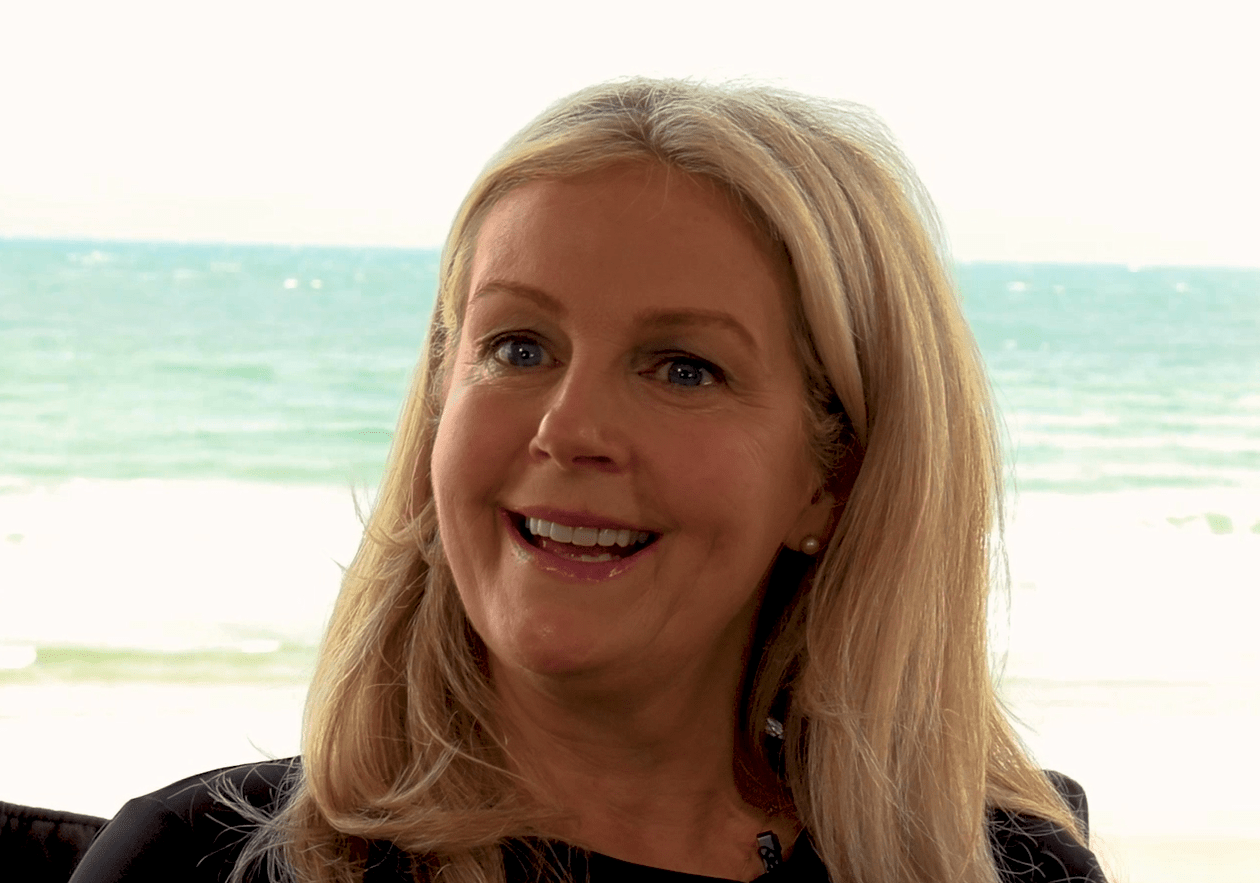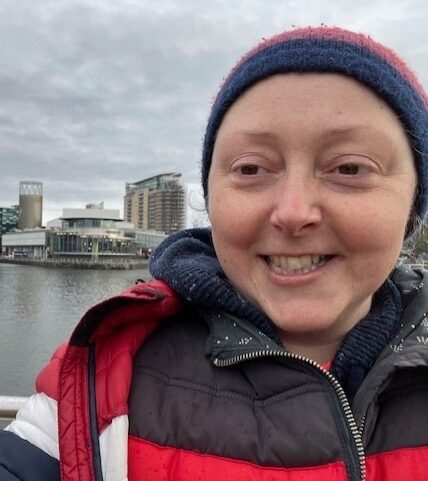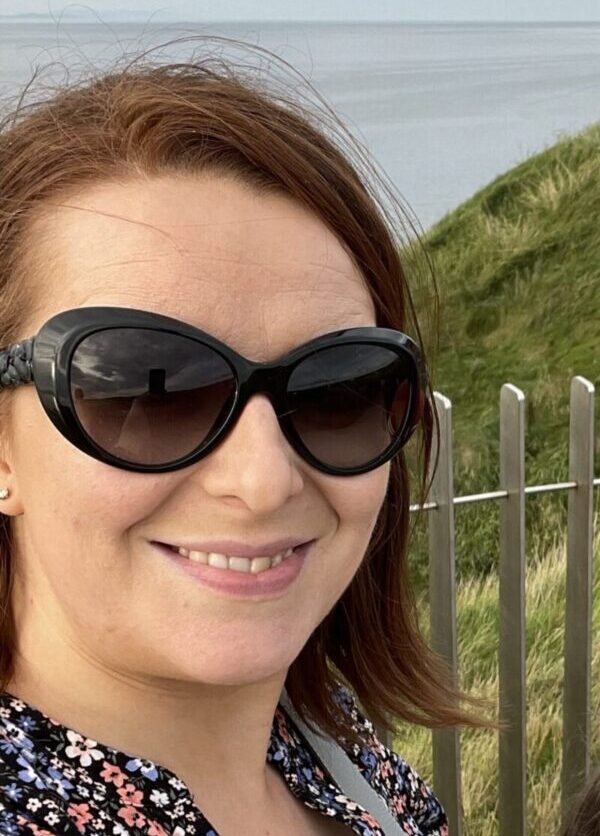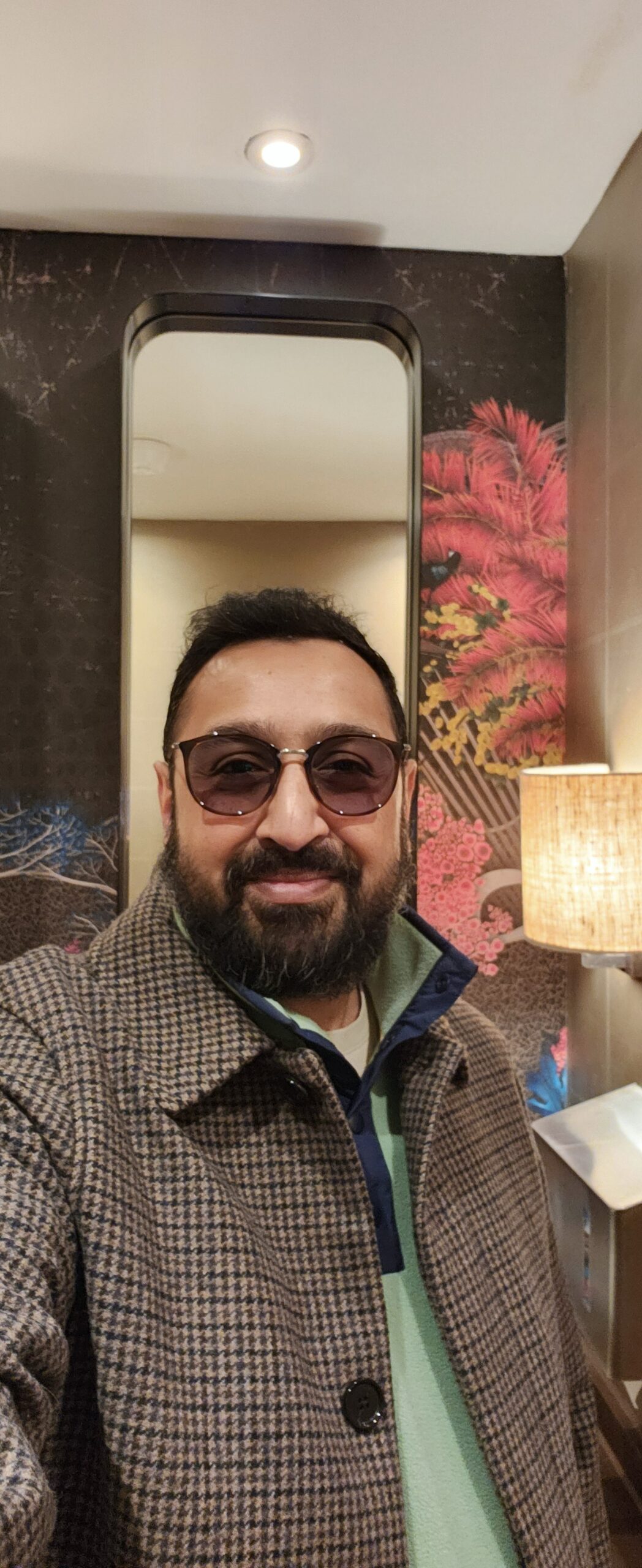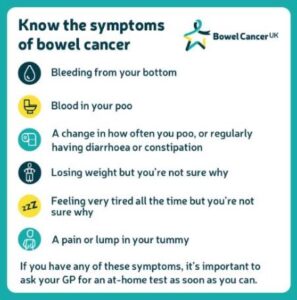So, for me, acceptance was a massive turning point for me, the acceptance of having the stoma at the beginning I thought, how could I live with this?
What can I do? I can’t play sport and I can’t actually pinpoint a time or explain what changed, but I just, I do remember when it was. It was a lovely sunny Friday evening, and the birds were singing, and the windows were open and I just thought, I’m still here. I’m alive. And I’ve got the chance now to live my life however, the slate has been wiped clean. I can just do whatever I want with my life now because I’ve got it back and I’m so lucky to be here.
So, is life the same? No.
Is it better in many different ways? Yes, absolutely. And that’s because I’ve accepted actually some of the stuff that I can’t do with the stoma is brilliant because it’s stuff I didn’t want to do anyway.
So, working a 9 to 5 job, slogging my guts out all day. That’s great. I now don’t want to place myself in a situation like that. Can’t really. So that’s a bonus, you know, and it kind of makes me it, it just makes my lifestyle has changed, but it I change it to suit me.
Now because I’m back to doing so much that I can do. And I used to do I don’t take as much time to step back and reflect. What achievements? You know that those are actually really big achievements. And when I do it almost kind of, I blow my own mind and think, wow, you know, when I think back two years ago, I thought I’d never leave the house with a stoma, I thought I would never leave the house with it again. But it it’s your life with a stoma, which can be whatever you want it to be and it just, you know, you’re your only limitation with it.
So even though, when you start chemotherapy, you will have a huge list of side effects to sign. And you look at it and you just think those all look horrendous. And chemo, yes it isn’t a walk in the park, and it is difficult and it is tough.
But you know overall going through chemo I found it was not as bad an experience as I expected it to be, or thought it was going to be. Exercise was my lifeline during all my cancer treatment.
When you’re going through chemo, you can feel like everything’s being done to you and it’s out of your control, but if you are exercising, it’s a way that you can take some control of doing something that’s positive for you and your body and something that you can really own and do and have a purpose.
Or if you have other hobbies, then those will give you a purpose also, and there’s something that you can really own and take control of.
So having things to distract exercise is brilliant because it has physical changes in the body which cause mental changes, positive changes as well. But if you have other hobbies or activities that you enjoy doing that make you feel good, then keep doing those.
It’s not going to be a walk in the park, but you will get through it and that looking back, I was so terrified. And I have just taken a day at a time and just faced into everything and dealt with it and have come out the other side hopefully in a better place. There’s so much support out there it cancer is a big scary word, I believe we need to start to destigmatize the whole word cancer because immediately people hear they’ve got cancer it terrifies them. And your mind, your mental attitude to the whole thing is half the battle, if not more so, I would say I’d, you know, I don’t say stay positive lightly, but do things that try and distract you. Try to keep as much normality in your life as possible.
So, you know, I’ve done things that I would never have done before.
Having a stoma has it’s opened up so many opportunities and it’s been an enabler for me to do things and to live life in a way that I wasn’t living my life before.
I was living my life in a way that I thought I should live my life, whereas now I live my life in a way that I choose to live my life and I want to live my life. So, you know, I say to people.
And again, I don’t say this lightly, but I say that having cancer is both the best and the worst thing that’s ever happened to me.
Hopefully take some inspiration from, people like myself and other people who have come through that journey. I’ve been from one extreme in the darkest places to now and seeing life in a completely different way and having my eyes opened and just being grateful for every single day that I have now.
Just remember
Be kind to yourself. Things will change with a new stoma and going through cancer and chemotherapy will be hard. You are stronger than your think you are, and you will get through this with the support of others.
Give yourself time. Things will take time, so patience is needed. Particularly as your routine settles there will be setbacks and changes, but it will get easier with time. Don’t be hard on yourself and take each day as it come.
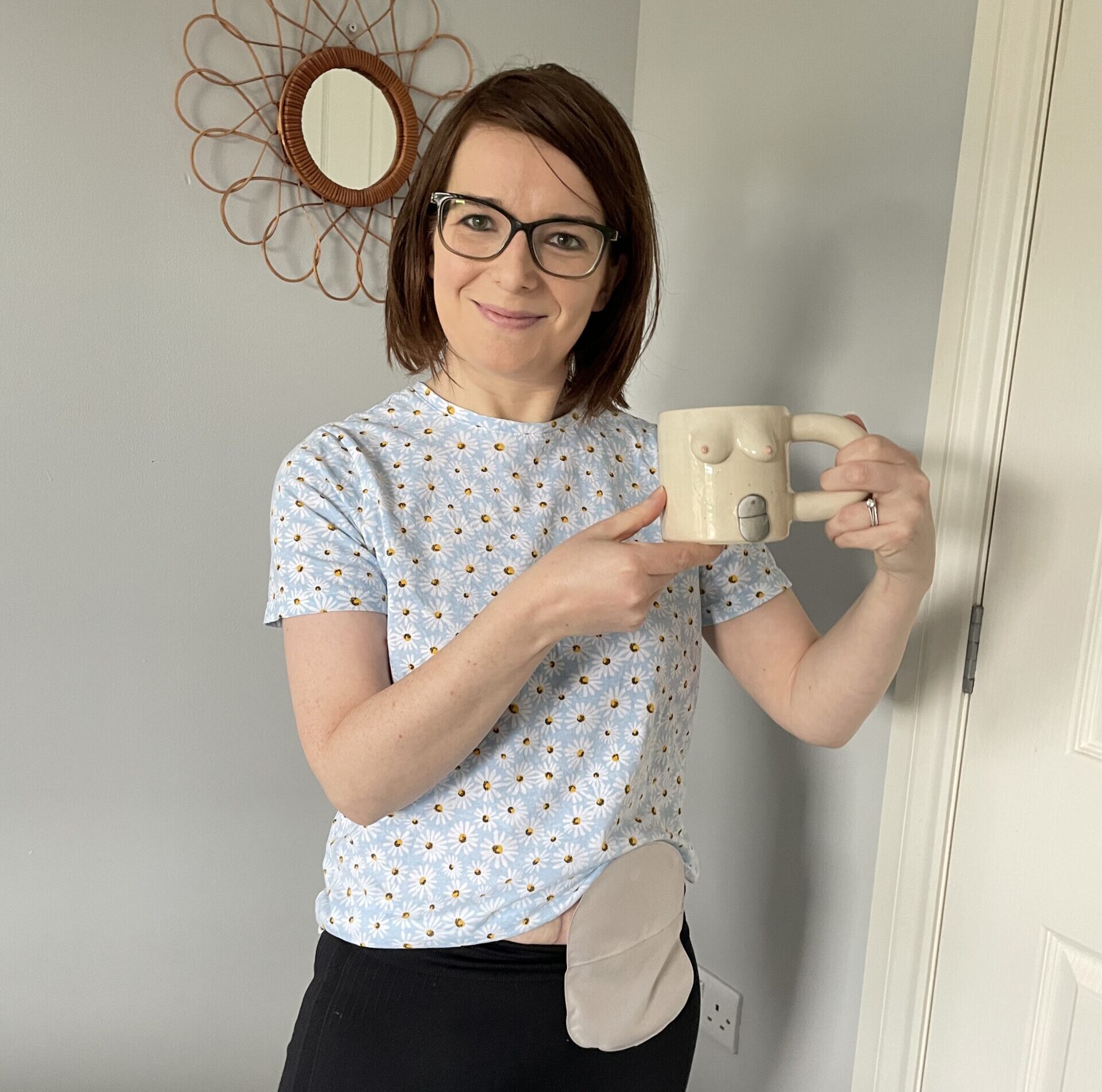

 US
US 

